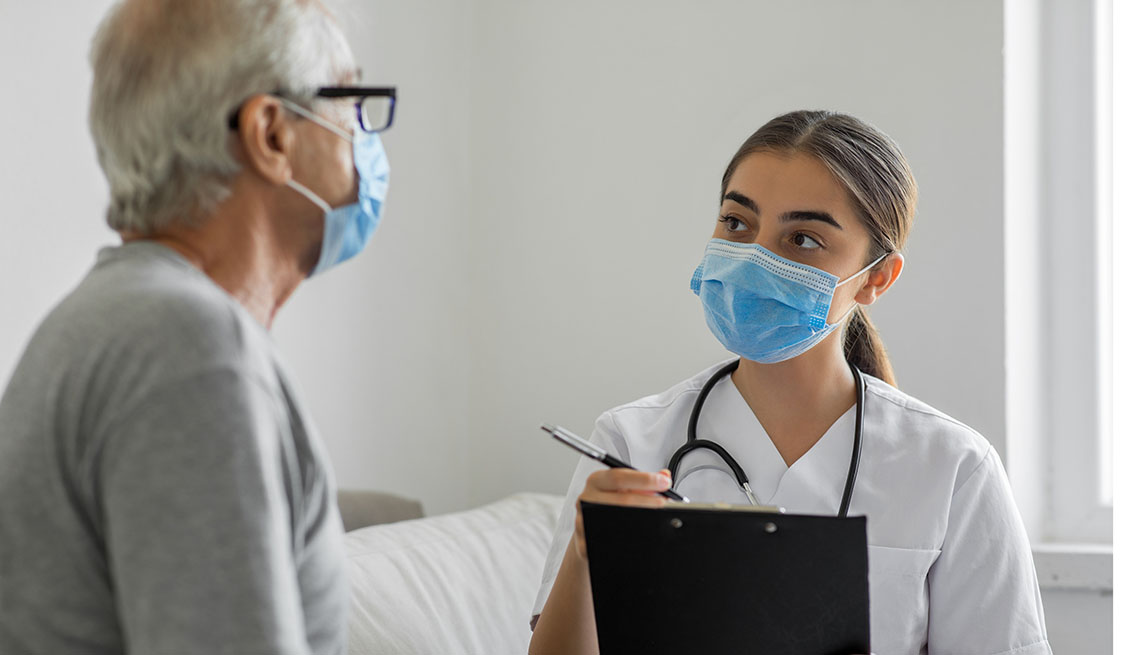
Image Source – Google
As the world continues to grapple with the impact of the COVID-19 pandemic, there is increasing concern about the long-term health effects that some individuals may experience even after recovering from the acute phase of the illness. It is essential to take proactive steps to prevent long-term complications associated with Covid-19. By following the tips outlined below, you can reduce the risk of lingering health issues and promote your overall well-being.
1. Stay Active and Exercise Regularly
Physical activity plays a crucial role in maintaining overall health and well-being, including boosting the immune system and reducing the risk of chronic conditions. Here are some tips to help you stay active:
- Engage in regular aerobic exercise, such as walking, cycling, or swimming, for at least 30 minutes a day.
- Incorporate strength training exercises using body weight or resistance bands to build muscle and improve stamina.
- Practice flexibility and balance exercises to enhance mobility and reduce the risk of injuries.
2. Maintain a Healthy Diet
Eating a balanced and nutritious diet is essential for supporting your immune system and overall health. Consider the following dietary tips:
- Include a variety of fruits and vegetables in your meals to provide essential vitamins, minerals, and antioxidants.
- Opt for whole grains, lean proteins, and healthy fats to fuel your body and promote recovery.
- Limit the consumption of processed foods, sugary drinks, and excessive amounts of salt and saturated fats.
3. Prioritize Sleep and Stress Management
Getting an adequate amount of quality sleep and managing stress effectively are vital components of maintaining good health. Here are some strategies to help you improve your sleep and manage stress:
- Establish a regular sleep schedule and create a relaxing bedtime routine to promote restful sleep.
- Practice relaxation techniques such as deep breathing, meditation, or yoga to reduce stress levels and promote mental well-being.
- Engage in activities that bring you joy and help you unwind, such as listening to music, spending time in nature, or connecting with loved ones.
4. Stay Hydrated and Avoid Harmful Habits
Proper hydration and avoiding harmful habits can have a significant impact on your health and well-being. Here are some tips to help you stay hydrated and steer clear of detrimental behaviors:
- Drink an adequate amount of water throughout the day to support bodily functions and prevent dehydration.
- Avoid smoking and limit alcohol consumption to reduce the risk of respiratory issues and other health complications.
- Steer clear of recreational drugs and seek help if you are struggling with substance abuse or addiction.
5. Follow Up with Healthcare Providers
It is crucial to follow up with your healthcare providers regularly, especially if you have recovered from Covid-19, to monitor your health and address any potential long-term complications. Consider the following recommendations for ongoing healthcare:
- Schedule regular check-ups with your primary care physician or a specialist to assess your overall health and well-being.
- Discuss any lingering symptoms or concerns with your healthcare provider to determine appropriate treatment or management strategies.
- Stay informed about the latest guidelines and recommendations for post-Covid care to ensure you are taking the necessary precautions.
Conclusion
Preventing long-term complications associated with Covid-19 requires a proactive approach to maintaining your health and well-being. By incorporating regular physical activity, a healthy diet, adequate sleep, and stress management techniques into your daily routine, you can reduce the risk of lingering health issues and promote your overall resilience. Additionally, staying hydrated, avoiding harmful habits, and following up with healthcare providers can help you stay on top of your health and address any potential concerns promptly. By taking these proactive steps, you can safeguard your well-being and minimize the impact of Covid-19 on your long-term health.

Leave a Reply
You must be logged in to post a comment.